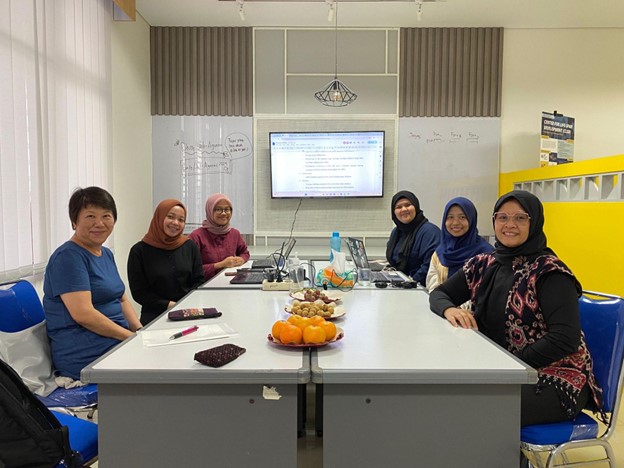
The Center for Life-Span Development (CLSD) at the Faculty of Psychology, Universitas Gadjah Mada (UGM), welcomed Prof. Emiko Kashima from La Trobe University, Australia, from July 3 to July 10, 2024. Prof. Emiko Kashima’s visit is part of CLSD’s Visiting Professor Program to foster international research collaboration. The main objectives of this program are to establish partnerships and collaborative research with global partners, publish research manuscripts, and develop research proposals for submission to secure international funding in the coming years. The program was conducted at the Faculty of Psychology, Universitas Gadjah Mada, and led by Sutarimah Ampuni, S.Psi., M.Si., MPsych., Ph.D., Psikolog, as the Head of CLSD. The program also involved lead researchers Zahra Frida Intani, S.Psi., M.Psi., Psikolog, and Smita Dinakaramani, S.Psi., M.Psi., Psikolog, both lecturers at the Faculty of Psychology UGM, along with interns (student trainees) from CLSD.
The program focused on drafting manuscripts from prior research titled “Culture and Morality: A Comparison of Moral Endorsements and the Formation of Moral Intentions in Australia and Indonesia.” In addition, plans for collaborative research were developed with universities and institutions across various countries, including Australia, Malaysia, Hong Kong, the United States, and Europe. This research aims to map moral judgments and moral endorsements among adults in different cultures, representing both Western and Eastern perspectives. Understanding the endorsement of moral values is crucial for comprehending societal differences regarding what is considered right and wrong. For example, some societies view LGBT issues as merely variations and not something inherently bad, while others strongly oppose LGBT and seek its eradication from society. Such differences are expected to become increasingly diverse and intense in the future, necessitating anticipatory measures to prevent conflicts that could disrupt societal harmony at both national and global levels.
This research is expected to provide insights into the shifting moral values in society over time. Understanding these changes is particularly important for analyzing societal transformation patterns, especially among adults. Moving forward, the research design will be expanded to include adolescents and children in Indonesia to fully comprehend the developmental patterns of moral values in the country. This knowledge will make a meaningful contribution to efforts aimed at enhancing socio-cultural resilience.
Furthermore, through planned research collaborations, the publication of future research findings is expected to have a positive impact on a broader audience, fostering partnerships among various stakeholders and strengthening the institution’s position both nationally and globally. As such, this program supports the achievement of SDG No. 16 (“Peace, Justice, and Strong Institutions”) and SDG No. 17 (“Partnerships for the Goals”).
